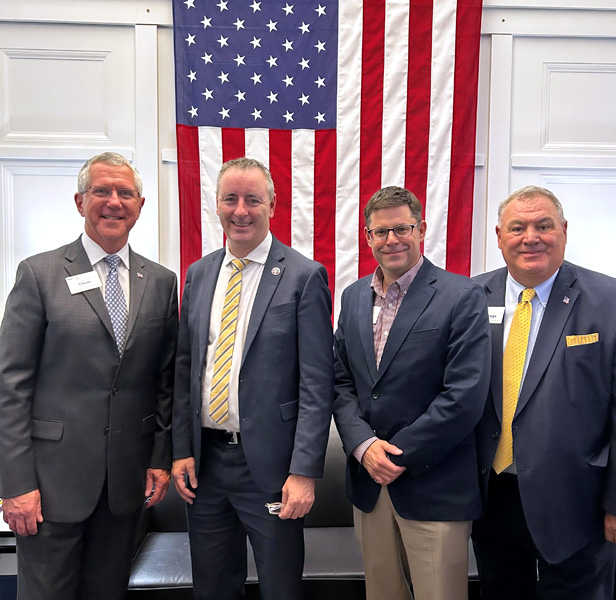June 09, 2023
Promo Leaders Advocate for the Industry in Washington, D.C.
More than 60 promotional product professionals met with federal lawmakers and their staffers in the capital this week to address issues important to the branded merchandise business.
Every industry needs a voice in the capital.
That’s just what promo got this week when more than 60 industry leaders flocked to Washington, D.C., to meet with Congress members and their staffers as part of Promotional Products Association International’s Legislative Education and Action Day (L.E.A.D.).
Over the course of approximately 80 meetings, promo leaders educated legislators about promo and advocated on the industry’s behalf. The event marked the first in-person L.E.A.D. held since 2019. COVID-19 concerns had compelled the action day to be virtual in recent years.
“In-person is definitely more impactful,” said L.E.A.D. attendee/industry advocate Chuck Machion, senior vice president and senior counsel at ASI. “The meetings last longer. The people we meet with are more receptive to our message. You go into their offices and you see they have promo products in there and you point that out. It becomes an icebreaker and then you dig into the important issues.”
Those issues included ensuring legislators understand that promo is a nearly $26 billion industry that’s composed overwhelmingly of small businesses; about 98% of industry companies are in that size category, according to PPAI.
“Part of what we focused on was helping lawmakers understand that this is an entrepreneurial industry of small businesses who provide solutions that are valuable and effective – and that when Congress looks to take certain legislative actions, that has potential to impact our industry,” Machion said.

At L.E.A.D., promo industry advocates met with lawmakers. Here is Chuck Machion of ASI; Congressman Brian Fitzpatrick, who represents Pennsylvania’s 1st Congressional district; Marc Held of alphabroder (asi/34063); and George Jackson of GJP Promotions.
For instance, he said, advocates discussed how the proposed Country of Origin Labeling (COOL) Online Act will be almost impossible for promo firms to comply with.
The act aims to ensure that all goods sold online list their country of origin. But given promo’s complex global supply lines, in which a particular SKU might be produced sometimes in, say, India, and other times in, say, Thailand, single country-of-origin labeling isn’t feasible. Industry advocates asked lawmakers to allow for multiple countries of origin to be identified for unfinished items sold online.
Among other topics, industry pros also discussed the proposed Richard L. Trumka Protecting the Right to Organize (PRO) Act of 2023, Machion said. While the main intention of the bill is to strengthen unions and encourage more workers to organize, the PRO Act contains language that could compel the reclassification of many independent contractors to employees – something that could be devastating to promo businesses and the livelihoods of the independent contractors that work in the industry.
Legislative analysts have said it’s unlikely the bill will pass in the Republican-controlled House of Representatives, but promo advocates at L.E.A.D. didn’t want to leave that to chance: They asked that Congress exempt promo from the independent contractor policy, should it be enacted.
“It’s important,” said Machion, “to help lawmakers understand the practical effects of legislation like this and that’s what we sought to do.”